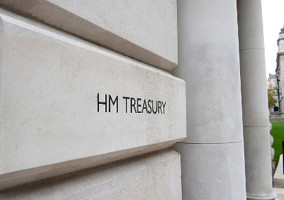Social Investment Tax Relief (SITR) has been extended until April 2023, today’s Budget documents reveal.
The relief had been due to finish at the end of April and the sector had been lobbying for an extension. Big Society Capital, Social Enterprise UK (SEUK), Co-ops UK and Resonance had called on Sunak to “preserve a vital tax relief” and so far nearly 400 people signed their open letter.
SITR allows an investor to claim back 30% of the value of an unsecured loan to an eligible charity against their tax bill. The relief, which was introduced by the government in 2014, is only open to individual investors.
However, take-up of the relief had been disappointing. The Treasury predicted that SITR would be used to support £83.3m-worth of investment in its first three years, but the actual figure was £5.1m and the total is now around £10m.
Today’s Budget document says: “The government will continue to support social enterprises in the UK that are seeking growth investment by extending the operation of SITR to April 2023.
“This will continue availability of Income Tax relief and Capital Gains Tax hold-over relief for investors in qualifying social enterprises, helping them access patient capital. This measure will be legislated for in Finance Bill 2021, and a summary of responses to the consultation held in spring 2019 will be published on 23 March.”
‘This needs to be the start of a dialogue’
Social Enterprise UK wants the government to do more to provide a supportive tax environment for the sector.
Peter Holbrook, chief executive at Social Enterprise UK said: “We welcome the decision from the chancellor to extend the Social Investment Tax Relief and listen to the views of social enterprises. However, we need this to be the start of a dialogue about how we can create a supportive tax environment for social enterprises to start, thrive and grow. The level of tax support that social enterprises receive compared to other sectors of the economy is not equal and SITR does not solve all the problems social enterprises face.
“There is no route to levelling up that doesn’t involve growing social enterprises. Government has a critical role to play in supporting the sector and I hope that this Budget marks the start of renewed engagement with social enterprises. We urgently need to redesign our tax system to recognise social, economic and environmental impact. Keeping SITR must not be the end to this work, but the beginning.”
Melanie Mills, senior director, social sector Engagement, Big Society Capital, said: “We are delighted today to hear the chancellor’s continued support for Social Investment Tax Relief (SITR) for another two years, demonstrating the government’s commitment to the social sector and the role it can play in the levelling up agenda. Today’s promise will enable vital patient and affordable capital to continue to be unlocked for social enterprises, charities and community businesses, allowing them to build back better and fairer.
“Saving SITR is just the first step towards unlocking more private investors' capital to support social enterprises and charities. Now, our action is to improve and extend it. We look forward to working with the Enterprise Investment Team within HM Treasury and Civil Society and Youth Directorate within DCMS to reform SITR, so that it can fulfil its potential.”
Related articles











